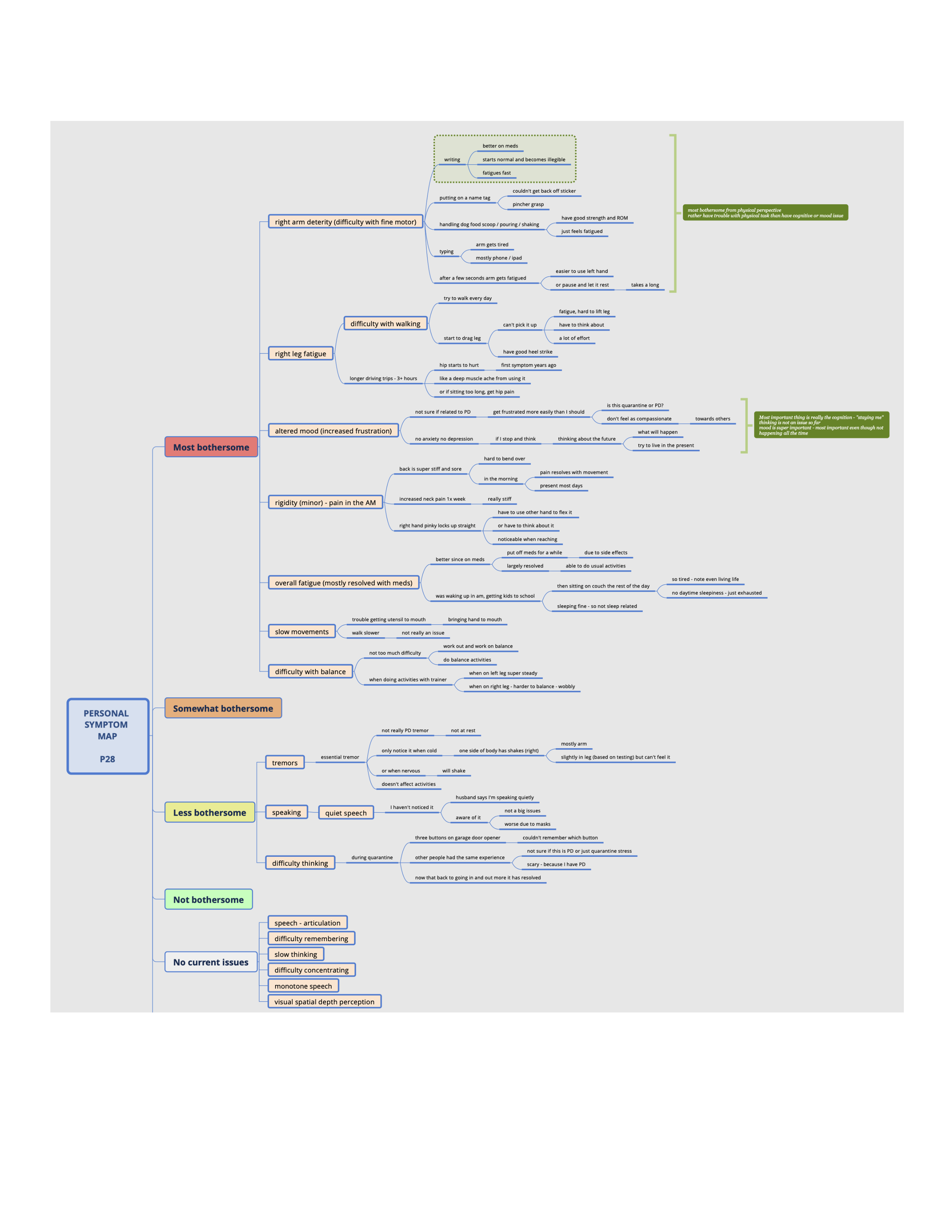Category: Parkinson’s Disease: Clinical Trials
Objective: To explore meaningful symptoms and impacts of disease on daily living in individuals with early-stage Parkinson’s disease (PD).
Background: Critical Path for Parkinson’s (CPP) consortium’s 3DT precompetitive initiative for regulatory advancement of Digital Health Technologies (DHTs) has been actively involved with the WATCH-PD study, a 12-month multi-center longitudinal study that evaluates DHTs in individuals with early, untreated PD. While DHTs can capture finer variation in early PD symptoms, there is limited knowledge as to whether DHTs capture aspects of disease that are meaningful to patients. Under the auspices of CPP, a study was designed to explore symptoms and impacts of PD that are meaningful from the patient perspective to better inform the use of DHTs in clinical trials.
Method: Participants with early PD who completed the WATCH-PD study (n=78) were invited to complete an online survey, with a purposeful subset (n=40) recruited for 1:1 virtual interviews. A semi-structured interview guide was used in conjunction with novel symptom mapping techniques to elicit symptoms and impacts. Participants were assisted to create a personal symptom map that visually delineated all symptoms of PD they experienced. Symptoms were then hierarchically ordered by how bothersome each symptom was and impacts of symptoms were defined. Follow up probes were used to explore common symptoms of PD not spontaneously mentioned. All interviews were conducted via Zoom screen sharing using Xmind software, and were recorded.
Results: As of March 2022, 62 participants completed surveys, with 37 interviewed. Demographics mirrored the parent study: 56.5% male, 95.2% Caucasian, and 2.3 years with PD, with 48.4% starting any PD medications after enrollment in the parent study. Symptom maps offered a clear visual display of symptoms ranging from most bothersome to not present [Figure1]. Bothersome aspects of disease and impacts were delineated via dependent nodes, supporting a deeper understanding of the early PD experience. Participants reported that symptom mapping facilitated discussion and enabled them to more effectively explain important symptoms and how these impacted their life.
Conclusion: Qualitative interviews using novel mapping approaches can help researchers understand patients’ symptom experiences, informing how we use DHTs in clinical trials to assess symptoms that are important from the patient perspective.
To cite this abstract in AMA style:
J. Mammen, R. Speck, R. Dorsey, M. Müller, P. Yang, S. Jensen-Roberts, M. Kostrzebski, J. Cosman, J. Hellsten, J. Crawford, G. Stebbins, J. Cedarbaum, T. Simuni, T. Dam, K. Ward Barowicz, D. Stephenson, J. Adams. Identifying meaningful symptoms and impacts of disease for patients with early Parkinson’s disease [abstract]. Mov Disord. 2022; 37 (suppl 2). https://www.mdsabstracts.org/abstract/identifying-meaningful-symptoms-and-impacts-of-disease-for-patients-with-early-parkinsons-disease/. Accessed December 18, 2025.« Back to 2022 International Congress
MDS Abstracts - https://www.mdsabstracts.org/abstract/identifying-meaningful-symptoms-and-impacts-of-disease-for-patients-with-early-parkinsons-disease/

